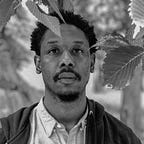3 Perfect Rap Songs Shaped My Politics
Rap music is a complex art form with many hidden messages and mantras
7 min readFeb 21, 2022
In Flatbush, Brooklyn, you had to live by a code. Usually, when people say that, it means you could end up hurt if you violate. But that’s extreme. I think of a code of ethics more like a failsafe when life goes left. I’m not sure whether I was middle class or poor growing up…
